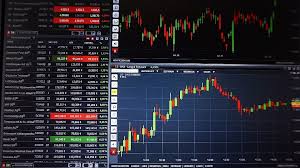
Forex Trading for Beginners: Understanding the Basics
Forex trading, or foreign exchange trading, is the process of exchanging one currency for another in the global marketplace. If you’re new to this field and looking for a way to invest, forex trading for beginners Best Indonesian Brokers can help you find trustworthy platforms. In this article, we will break down the fundamentals of forex trading, offering you the knowledge and tools you need to get started.
What is Forex Trading?
Forex trading involves buying one currency while simultaneously selling another. Currencies are traded in pairs, such as EUR/USD (Euro/US Dollar) or GBP/JPY (British Pound/Japanese Yen). The price movement in forex is driven by various factors, including economic indicators, interest rates, and geopolitical events.
Why Trade Forex?
Forex trading offers several advantages that make it attractive to beginners:
- High Liquidity: The forex market is the largest financial market in the world, providing high liquidity, which means you can buy and sell currencies quickly without significantly impacting prices.
- Accessibility: You can start trading with a small amount of capital, making it accessible for beginners.
- 24/5 Market Hours: The forex market is open 24 hours a day, five days a week, allowing you to trade at your convenience.
- Leverage: Many brokers offer leverage, enabling you to control larger positions than your initial investment would allow.

Key Concepts and Terms in Forex Trading
Before diving into trading, it’s crucial to understand some fundamental concepts and terms:
- Forex Pair: A currency pair consists of two currencies, such as USD/EUR. The first currency is the base currency, while the second is the quote currency.
- Bid and Ask Price: The bid price is the price at which you can sell a currency pair, while the ask price is the price at which you can buy it.
- Spread: The difference between the bid and ask price is called the spread, which is often the broker’s profit in the trade.
- Pips: A pip is the smallest price move in a currency pair, usually measured in the fourth decimal place (e.g., 0.0001).
- Lot Size: This refers to the size of your trade. A standard lot is 100,000 units of the base currency, while other sizes (mini and micro) are available for traders who wish to start small.
Developing a Trading Strategy
A trading strategy is essential for success in forex trading. Here are some common approaches:
- Technical Analysis: This involves analyzing price charts and using indicators to forecast future movements. Traders often look for patterns in price movements to make informed decisions.
- Fundamental Analysis: Traders who use fundamental analysis focus on economic news, reports, and data releases that influence currency values. This includes information about interest rates, GDP, and inflation.
- Sentiment Analysis: This strategy gauges the mood of the market (bullish or bearish) to make trading decisions based on the collective sentiment of other traders.
Choosing a Forex Broker
Selecting the right broker is crucial for your trading experience. Here are some factors to consider:

- Regulation: Ensure the broker is regulated by a reputable financial authority, which provides a level of security and professionalism.
- Trading Platforms: Look for brokers that offer user-friendly platforms with the necessary tools for your trading style.
- Commissions and Spreads: Compare the costs associated with trading, including spreads and commissions, to find a broker that offers competitive pricing.
- Customer Support: Good customer service is essential, especially for beginners. Test the support before you open an account.
Risk Management
A significant aspect of trading is managing your risk. Here are some strategies to help:
- Use Stop Loss Orders: A stop loss order limits your potential losses by automatically closing a position at a predetermined price.
- Risk Only What You Can Afford to Lose: Always trade with money you can afford to lose to avoid financial stress.
- Diversify Your Portfolio: Don’t put all your funds into one trade. Spread your investments across different currency pairs to mitigate risk.
Practicing with a Demo Account
Most brokers offer demo accounts, allowing you to practice trading without risking real money. Use this opportunity to familiarize yourself with the trading platform, develop and test your strategies, and gain experience in different market conditions.
Conclusion
Forex trading can be a rewarding venture for beginners if approached with the right knowledge and strategy. By understanding the market’s fundamentals, developing a solid trading plan, and practicing responsible risk management, you can increase your chances of success. Remember to keep learning and stay updated on market trends, as the world of forex is constantly evolving. With patience and dedication, you can become a proficient forex trader.
